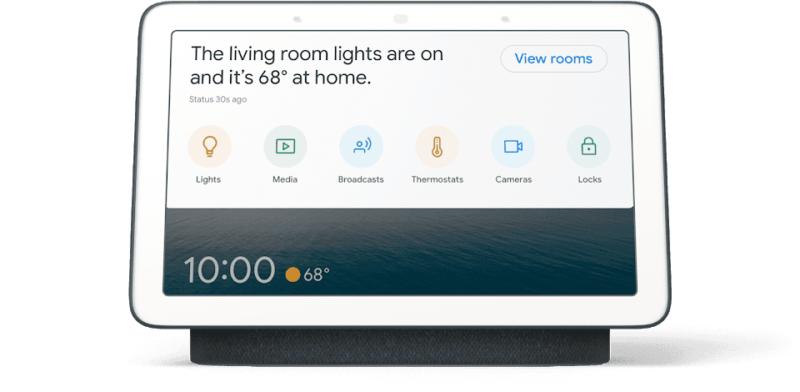

A Google smart display with radar-based sleep tracking is reportedly happening
source link: https://arstechnica.com/gadgets/2021/01/rumor-googles-cooking-up-a-sleep-tracking-smart-display-with-radar/
Go to the source link to view the article. You can view the picture content, updated content and better typesetting reading experience. If the link is broken, please click the button below to view the snapshot at that time.

Google wants to know everything about you! —
A Google smart display with radar-based sleep tracking is reportedly happening
After flopping in the Pixel line, Google's radar chips are coming to smart displays.
Ron Amadeo - 1/9/2021, 1:46 AM

A "sleep-tracking smart display" sounds like something you might come up with if you were pulling tech product buzzwords out of a hat, but that is the latest Google product rumor on the always-reliable 9to5Google. Earlier this week, a new Nest product hit the FCC with Project Soli onboard, and after some digging, 9to5's sources now say it's for a new Nest Hub smart display with sleep tracking. I guess the idea here is a bedside alarm clock that will scan you with radar waves while you sleep.
The Project Soli support revealed in the FCC filing is a tiny radar chip Google developed in-house for gesture sensing. The chip has been in development for at least six years now from Google's ATAP group and has yet to be commercially successful. The original promise was that Soli would be able to detect fine finger movements like the virtual tapping of a button or turning of a dial, but the commercial models have never approached this level of fidelity. Soli debuted on the Pixel 4, where it could only detect large hand movements, and it was enough of a failure that it didn't make it to the Pixel 5. The chip is currently in the new Nest thermostat, but it only replaces the old motion sensor and does not seem to provide any new capabilities or improved features.
Google's partners have pitched the idea of a Google Assistant smart display as a bedside alarm clock, most notably in the Lenovo Smart Clock, but Google itself has not made one. Some of Google's smart displays come with cameras for video calls and face ID, but it's easy to imagine consumers balking at putting a camera in the bedroom. Soli radar would let Google track user movements without seeing the gruesome details. Today Google smart displays and speakers use ultrasonic sonar for some basic presence detection, but it's possible Soli could provide greater fidelity.The Project Soli air gestures that were pitched for the Pixel 4 seem like they would be a bit more useful on a smart display than a phone, too. The Pixel 4 could detect an arm wave to skip music or a flat hand to stop an alarm. Those weren't particularly useful since a phone is nearly always by your side, offering a more accurate touchscreen that is probably within reach, but how about on a smart display? Since a smart display is visible from across the room and is something you don't carry with you, you're more likely to interact with it from a distance. If the Nest Hub version of Soli has any kind of range, some form of hand-waving gestures for content control could be useful.
AdvertisementIt's not clear why consumers would want to let Google track their sleep patterns. Sleep tracking has mostly been the realm of fitness trackers and smartwatches, and Google doesn't really compete in those areas anymore. Google has a smartwatch platform, Wear OS, but it is basically dead. The last major Wear OS update was in 2018, and Google recently killed the closest thing Wear OS had to a killer app, Google Fit's weight training. Google is currently working on clearing its Fitbit acquisition with regulators, but Fitbit is not a wearables winner, either. It was an early mover in the fitness tracking trend, but its market share has collapsed down to single digits now that competitors have shown up, with companies like Xiaomi taking the low end and Apple taking the high end. If Google can't do sleep tracking through a viable fitness platform, I guess a smart alarm clock is the next best thing.
9to5Google says that "the new Nest Hub with Soli is coming this year," and "we’re told it will arrive sooner than later." The site also notes that the FCC filing that kicked off its investigation has a confidentiality request that is set to expire in July, so we'll probably hear more about the product before then.
Recommend
About Joyk
Aggregate valuable and interesting links.
Joyk means Joy of geeK